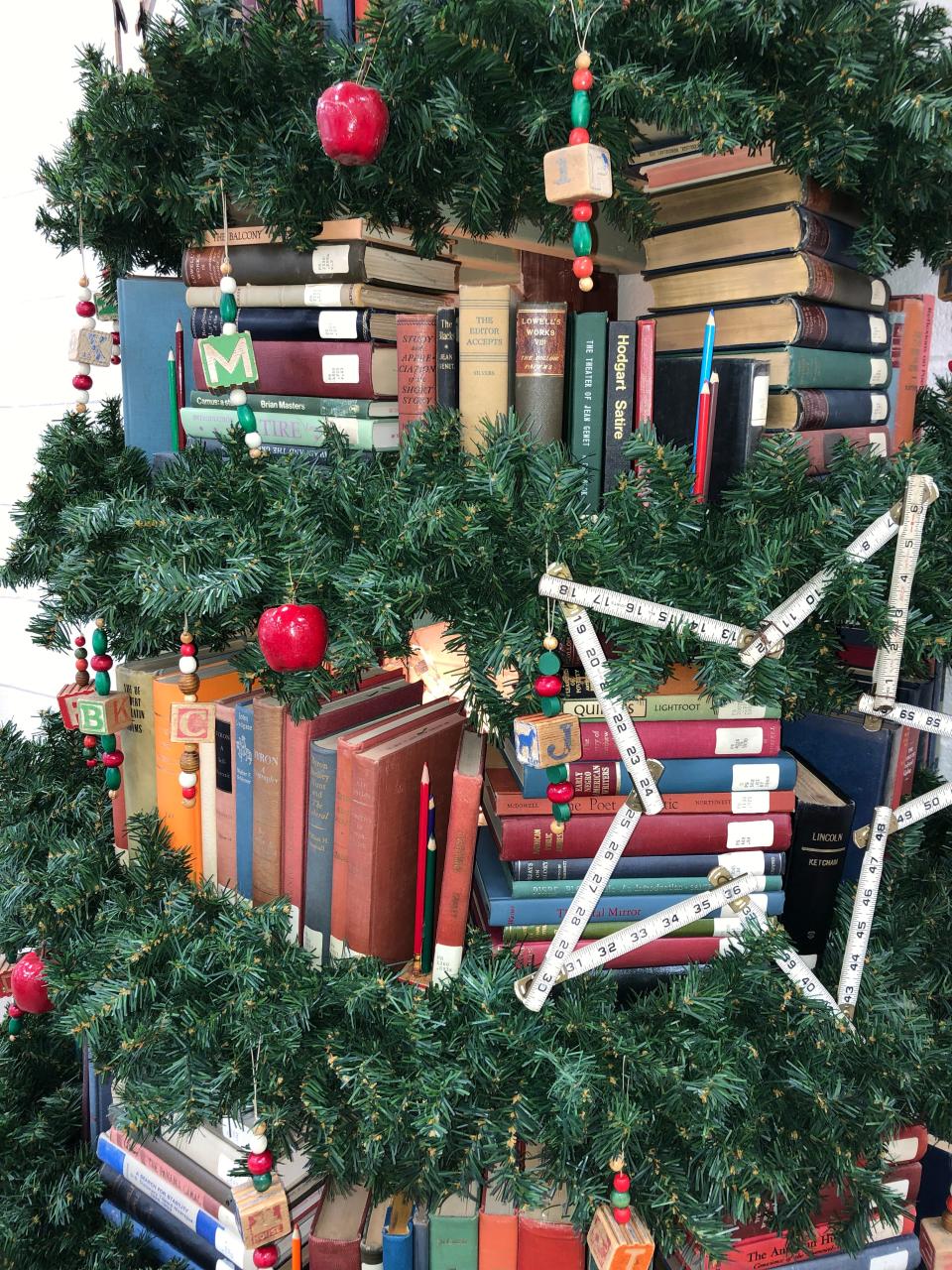Is the 'Christmas book flood' fictional?
As soon as I learned about Jólabókaflóð, I fell in love. In Iceland, I learned, people exchange books on Christmas Eve and then spend the night reading over cocoa and sweets.
A bookworm’s dream holiday! To borrow a word from a different Scandinavian country, it couldn’t be more hygge. News outlets enthused from Mental Floss to Martha Stewart.
I don’t even celebrate Christmas, but I began inviting people over on the 24th for Jólabókaflóð. The word is pronounced, roughly, “YO-la-BO-ka-float,” and translates as “the Christmas book flood,” I informed my guests.
This year, I decided to write about how Icelanders observe Jólabókaflóð in the U.S. To my dismay, the happy tale had a shocking twist. Jólabókaflóð, the reader’s holiday, is kind of … fictional.
Redditors on two r/Iceland threads scoffed. Of course they did. But they seemed to have a point.
“It's not a cultural tradition like you're suggesting, and whatever version you've heard of it is probably very romanticized,” EgNotaEkkiReddit wrote.
“Hearing ‘Jólabókaflóð’ being called tradition instantly makes me cringe. Like calling the old McDonald's supersize offer a U.S. tradition,” Ellert0 wrote.

So how did we get here? The myth comes from several truths.
1. Icelanders read a lot of books.
They read an average of 2.4 books a month, according to Guðrún Baldvinsdóttir of the Icelandic Literature Center. In comparison, Americans read about 1 book per month, according to Gallup.
2. The Icelandic publishing industry goes wild at this time of year.
Icelandic publishers invented Jólabókaflóð during World War II to boost business. Companies marketed books as the perfect holiday gift because paper wasn’t rationed, according to the Jolabokaflod Book Campaign.
The industry still does “flood” the market in the lead-up to Christmas. Its 2022 new-books catalog runs to more than 80 pages.
“I would say that the people that mainly ‘celebrate’ Jólabókaflóð are the publishers and booksellers,” Guðrún Baldvinsdóttir of the Icelandic Literature Center wrote in an email.
3. Books are popular Christmas gifts in Iceland.
Sunna Furstenau, president of Icelandic Roots, grew up in an Icelandic family in North Dakota.
“Ever since I was a little kid, everybody gets a book for Christmas,” she said. “It is common to give books as presents for Christmas, mostly books by Icelandic authors since those are the ones that are newly published,” Baldvinsdóttir said.
"In fact, “40% of all books sold during the year are actually sold in November and December.”
And with just 3-4 hours of daylight at the end of December, it’s a great time to read.
(Appropriately for this subject, Furstenau’s first name happens to be that of the Norse Sun goddess.)
4. Icelanders open all their gifts, books and otherwise, on Christmas Eve.
Like humans everywhere, they tend to want to dive into their new goodies right away. Furstenau’s aunt “could hardly wait to start reading her new book. And a lot of my cousins in Iceland are the same way,” she said.
5. Icelanders tend to have a sweet tooth.
“Yes! Terrible,” Furstenau said of the sweets craze. She rattled off her Christmas favorites: vínarterta (a prune layer cake), pönnukökur (a crepe), kleinur (a cruller). Pair them with “dark, thick, strong coffee.”
To sum up, plenty of Icelanders will end up reading a new book on Christmas Eve over cocoa and dessert. But “very few people, if any, specifically get together to gift books and enjoy chocolate,” EgNotaEkkiReddit wrote.
Jólabókaflóð “does not describe a distinct cultural phenomena or actions or whatever. It is a noun describing the amount of published books. Nothing more,” AngryVolcano wrote.
More:Opinion: Have yourself a merry Jewish Christmas
In exchange for disappointing me, my sources shared some actual, for-sure Icelandic Christmas traditions.
Along with all those desserts, Icelanders eat hangikjöt, a smoked lamb roast. There are 13 Yule Lads, mischievous sons of ogres, with names like “Door Slammer” and “Spoon Licker.” They visit in the lead-up to Christmas and may leave gifts in children’s shoes.
Icelanders wear new clothes on Christmas Eve, due to Jólakötturinn, the giant and fearsome Christmas cat.
“If you don’t have something new to wear on Christmas Eve, the Christmas Cat will eat you,” Furstenau said. Even a pair of socks will fend off the feline.
Where does this knowledge leave me and other fans of the kinda-sorta-imaginary reader’s holiday? Icelandic redditors encouraged a previous Jólabókaflóð fan to continue.
“Books are a great gift (or can be). What is and isn't done on a remote island somewhere up north doesn't change that,” AngryVolcano wrote.
“I wholly encourage the romantic version being spread around abroad,” EgNotaEkkiReddit wrote. “Culture is a dialogue.”
Secure in Icelandic approval, I am buying books as gifts again – more so than usual, in fact. I am hosting on Christmas Eve. I will wear old clothes, for my two Christmas cats will eat everything else in the house before they eat me, including books. (Cousin Chris, sorry about the cover of that “Calvin & Hobbes” collection.)
We will light the menorah, exchange books and read over cocoa and sweets, including the leftover licorice I just unearthed. Or rather, I will attempt to read despite these odd people I love trying to talk with me instead.
It’s a tradition.
Danielle Dreilinger is an American South storytelling reporter and the author of the book “The Secret History of Home Economics.” You can reach her at ddreilinger@gannett.com or 919/236-3141.
This article originally appeared on The American South: Is the 'Christmas book flood' tradition real?

